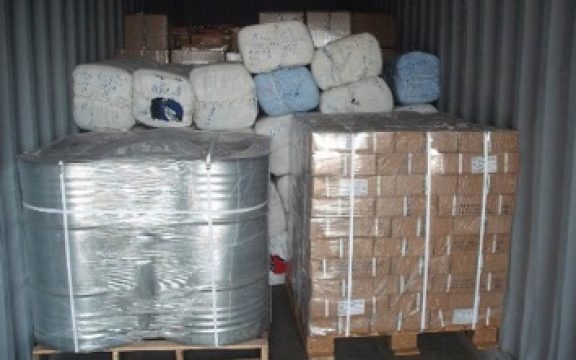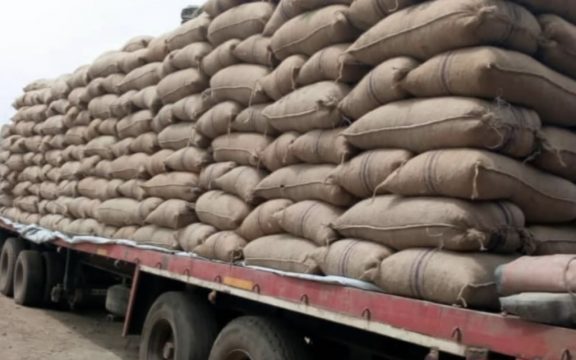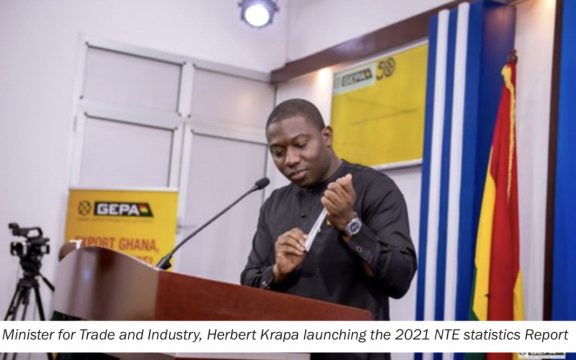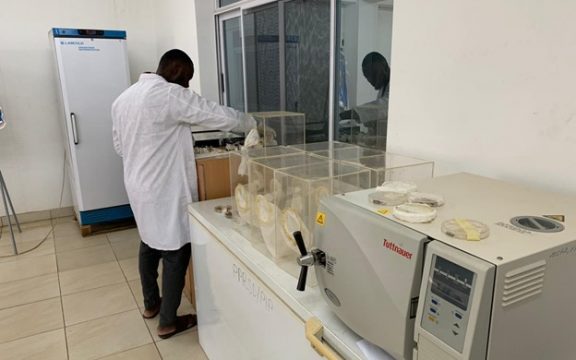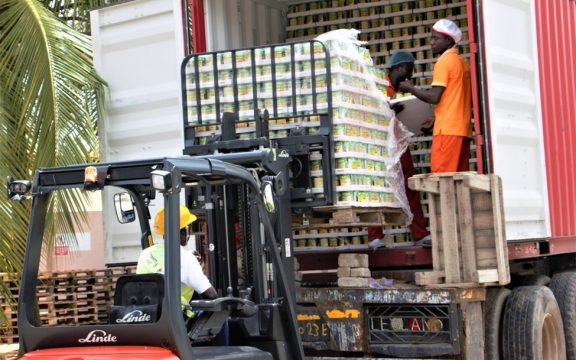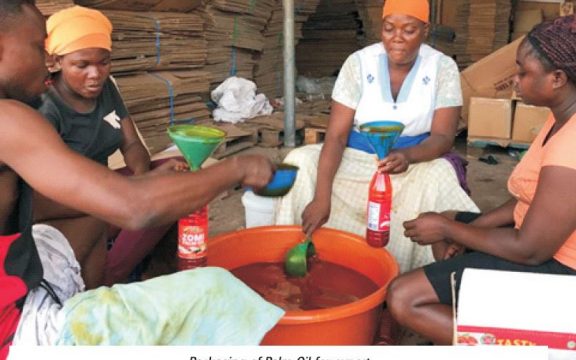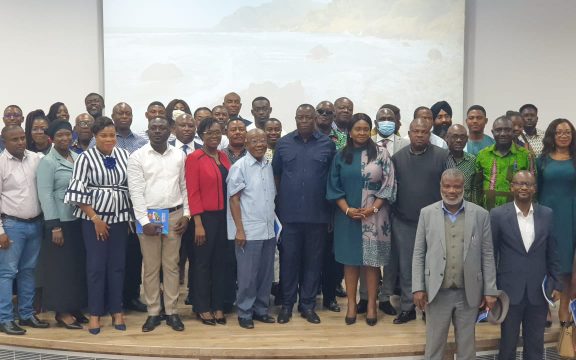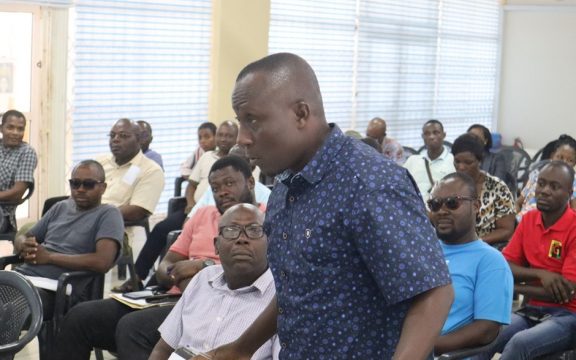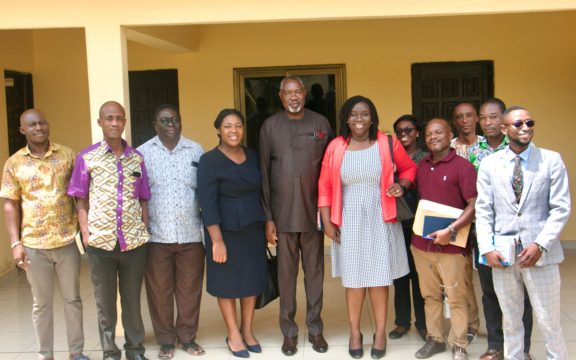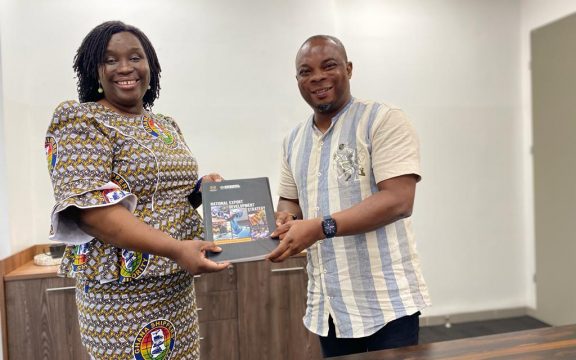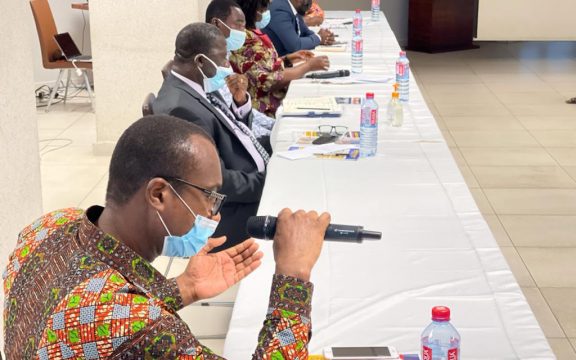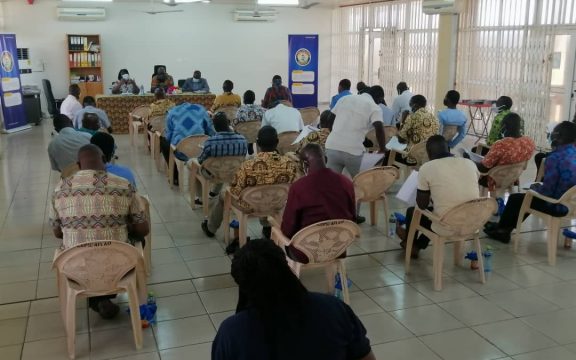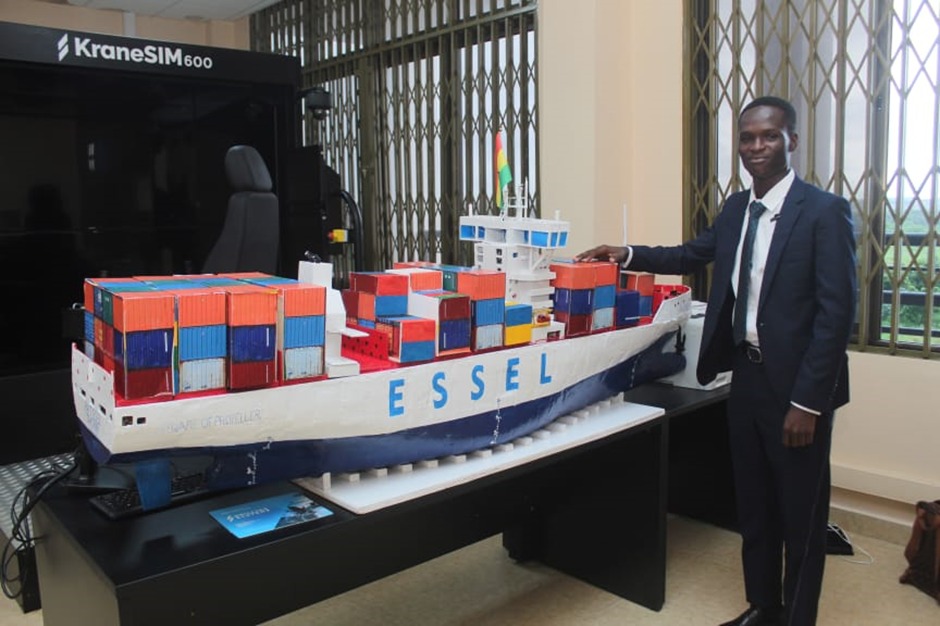 Patrick Essel is a B.Sc. Nautical Science student of the Regional Maritime University (RMU), who has recently graduated with the June, 2022 group.
Patrick Essel is a B.Sc. Nautical Science student of the Regional Maritime University (RMU), who has recently graduated with the June, 2022 group.
The model vessel “PATSSEL” which he built as his Final Year Project Work is an innovation which was conceived in June 2021. During a defense of his Project for the award of a degree on 24th May, 2022, Patrick revealed that his motivation to build the Vessel was conceived in June, 2021 when he had the opportunity to do his industrial attachment with the Office of the Flag Officer Fleet at the Sekondi-Takoradi Naval Base. During his attachment, he joined vessels to participate in sea trials with the officers which gave him the opportunity to put into practice theories and principles taught in the classroom. It was at that point that his passion for constructing a shipping vessel was birthed.
In the advent of automation of the shipping industry, several trials have been conducted on the feasibility of autonomous ships and the concept has reached a level of maturity. Cutting edge technology when employed on ships could enhance efficiency of seamanship operations such as remote operation of anchors, rudder and general navigation. This Knowledge spurred on Patrick to commence the construction of his model “MV PATSSEL” to serve as a design plan for the construction of the first semi-autonomous ship in Ghana and also serve as a teaching aid.
The purpose of the model ship MV PATSSEL is to aid teaching and learning of Nautical courses such as Shipboard operations, seamanship and navigation. The operational parts of the ship will make it easier for students to understand important seamanship operations such as anchor work, cargo planning, and lights and sound signaling.
The concept of the remotely controlled ship and the interest showed by Mr. Patrick Essel, a level 400 Nautical Science student of RMU, cannot be overlooked. The shipping industry is very dynamic and impacting businesses. The connectivity by Patrick to venture into the design and development of a remotely controlled ship is highly commendable.
In his practical considerations of a container vessel, he has implemented areas which are remotely controlled in ship board operations. This is very relevant for future skills of seafarers’ maritime training because interest is growing very fast. It is a work-in-progress and technologies already exist. There are indications that remotely operated ships for the maritime trade will soon be underway.
The RMU continues to churn out talented and innovative minds and build capacity for the maritime and ancillary industries in the sub-region and beyond. With its motto of “Knowledge, Excellence and Discipline,” RMU continues to be a global brand providing world-class education, research and consultancy.
Interested persons may apply to the University to become certified seafarers and maritime professionals, among others.
Digitally Protecting and Promoting NTEs ….the Story of PPRSD
Between 2015 and 2017, Ghana came under the radar of the EU for the wrong reasons, leading to severe restrictions on exports. Despite favourable concessions as a result of Ghana being a signatory to the Economic Partnership Agreement, the EU in September 2015 placed a ban on some vegetables originating from Ghana, citing the presence of toxins and “pest issues” which made the vegetables “unwholesome for consumption. These products include calabash, eggplant, chilli peppers and the cucumber-like luffa, also known as Chinese okra. As a result, Ghana’s economy reportedly lost about 36 million dollars in foreign exchange.
Although the ban was lifted on 1st January 2018, the situation is worrying because the EU is still Ghana’s biggest market hence any ban in the future may hamper the progress made in the Non-Traditional Exports (NTEs) sector and Ghana’s target of raising $25.3 billion from NTEs by 2029. The Plant Protection and Regulatory Services Directorate (PPRSD) is an agency under the Ministry of Food and Agriculture, the PPRSD was established in 1965 by an Act of Parliament: Prevention and Control of Pest and Diseases of Plants Act, 307 and replaced by the ‘Plants and Fertilizer Act, 2010 (Act 803).
The PPRSD is the Institution with the mandate to organize, regulate, implement, and coordinate the plant protection services needed for the country in support of sustainable growth and development of Agriculture. In short, the department is mandated to ensure that all plant products imported or exported are safe and meet all international requirements and standards.
PPRSD goes Digital
In an attempt to prevent future bans on NTEs to Europe, the PPRSD went digital with its tracing system dubbed ‘E-Traceability’. The move was to ensure that Ghanaian agricultural products earmarked for export are fully monitored from the production, handling, transport and export stage. The E-Traceability system ensures food safety because it allows stakeholders in the supply value chain to confidently verify that plant product such as fruits and vegetables are safe and unrelated to any ongoing food safety incidents.
The system also helps in mitigating the incidence of fraud and counterfeiting of plant-based products as well as ensuring trust between exporters and their customers.
The E-Traceability system which became operational in September 2021 immediately resulted in positive feedback. Statistics from the PPRSD at the time of its operationalization indicated that the number of alerts from the EU dropped by 97.1%, from 345 alerts in 2015 to under 10 alerts in 2021. The PPRSD plans to phase out the manual traceability system completely in favour of the E-Traceability system by 2024.
Despite the evidence of positive results from the E-Traceability system since its rollout, patronage has been low due to a number of reasons. Speaking to the Shipping Review Magazine in Accra, the Director of the Plant Protection and Regulatory Services Directorate Mr. Eric Bentsil Quaye said: “The E-Traceability System as we all know is a good system that has come to stay to help the food chain, however, its patronage hasn’t reached our level of expectation primarily due to the fact that some exporters do not have IT inclined staff to handle their traceability system while others view the system as cumbersome to use.” As a result, Mr. Quaye has called for more stakeholder engagements to encourage exporters to patronize the system.
 Patrick Essel with his Uncle ASP Edward K. Nyewan
Patrick Essel with his Uncle ASP Edward K. Nyewan
ePhyto system
The National Plant Protection Organizations (NPPOs) are mandated to ensure the promotion of cross-border trade by adhering to and enforcing the regulations that check the import and export of plant products to prevent the transfer of pests and diseases. It is for this reason that Phytosanitary Certificates are issued to confirm that plants, plant products and other regulated articles earmarked for import/export meet the specified requirements.
Currently, the widely used model of phytosanitary transmission in International Trade is the paper Phytosanitary certificate that accompanies commodity shipments.
The system, when fully functional in Ghana will help reduce the possibilities of fraudulent documentation, data entry anomalies and validation functions by NPPO staff, improve security in the transmission of certificate documentation and Improve planning for the arrival and clearance of plants and plant products.
Over the past years, there have been attempts to put in place a fully functional ePhyto System in Ghana, with several stakeholders championing such calls. The Director of the Plant Protection and Regulatory Services Directorate, Mr Eric Bentsil Quaye is one of such persons.
According to him, the global market is gradually becoming electronic based, thus moving from manual documentation to electronic document transfer. He noted that most countries are now switching to the use of electronic phytosanitary certification transfer (ePhyto) for International Trade and Ghana has developed its system to a point that needs assistance to push it into full operation.
Story by: Mrs. Evelyn Quartey, Head of Marketing, RMU



